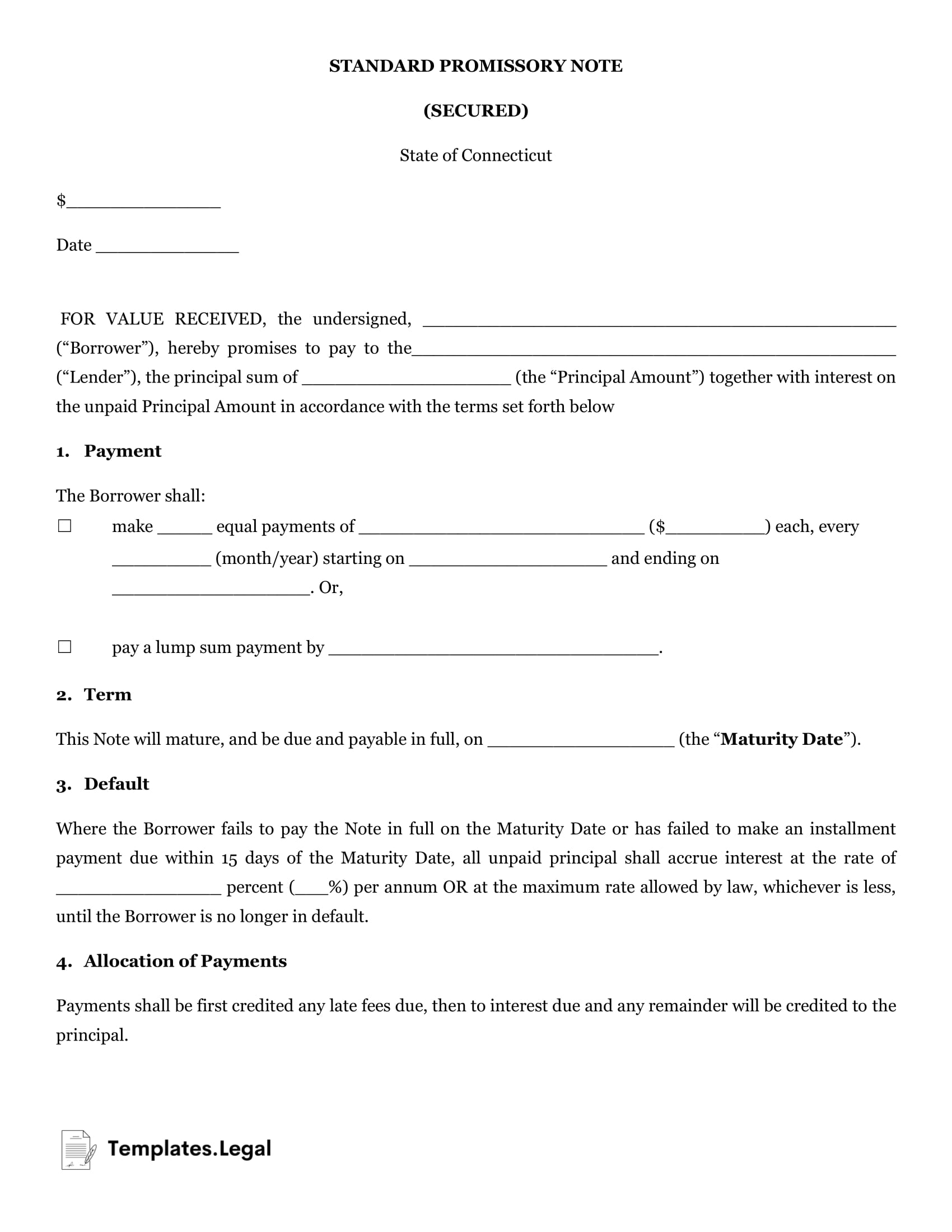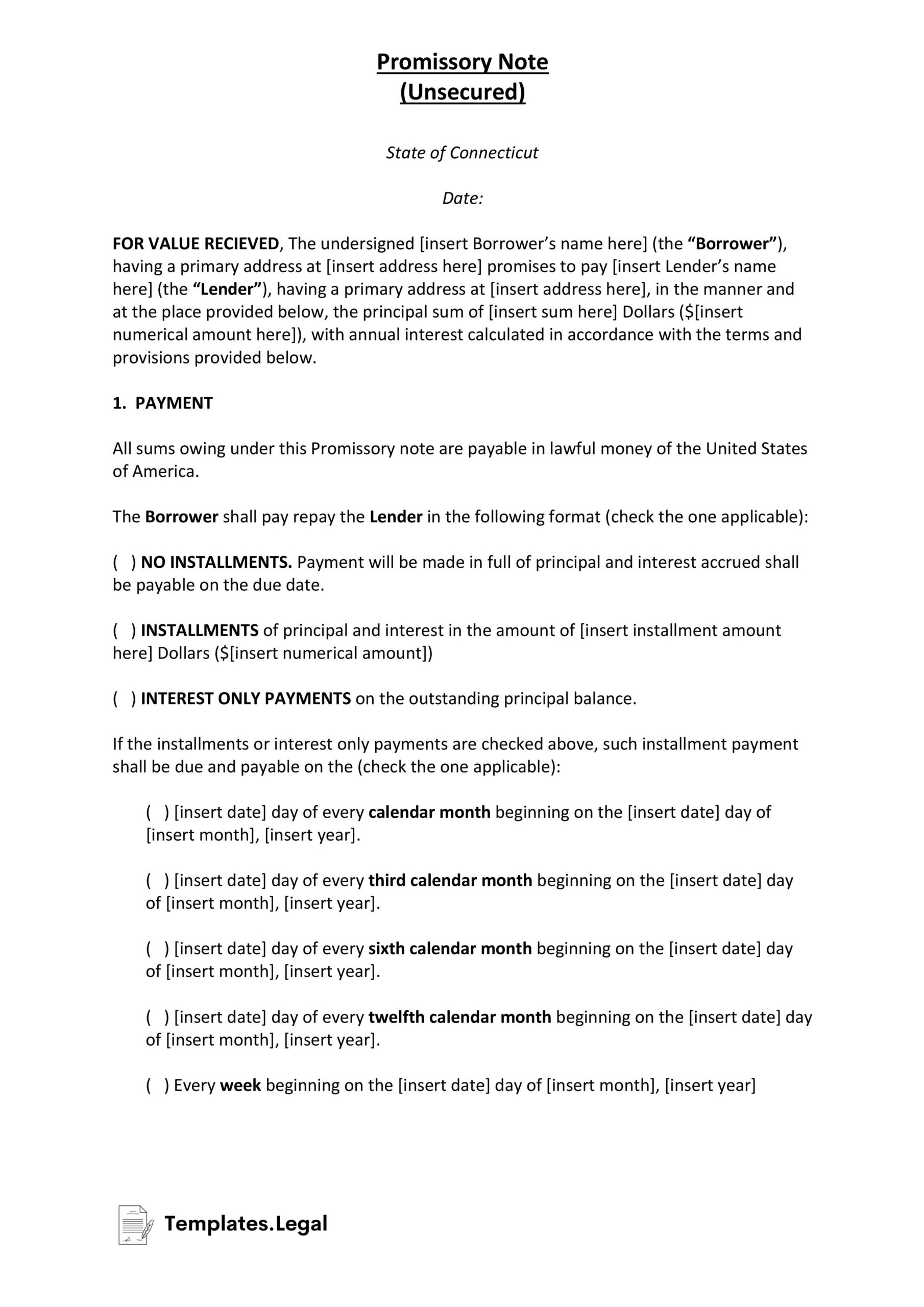Connecticut Promissory Note Templates
A Connecticut promissory note is a document that establishes the terms of a loan between two parties. These parties are known as the lender and the borrower.
The parties outline the specifics of the loan in the promissory note, including things like the payment amount, payment method, due date, and interest rate, among others. The form should also include any pertinent information about the parties, such as their names and contact information.
Once signed, the promissory note constitutes a legally binding written promise for repayment that the lender makes the borrower. And as they are considered contracts, various laws regulate promissory notes in Connecticut.
There are two types of Connecticut promissory notes: secured and unsecured.
Connecticut Secured Promissory Note
A secured promissory note requires the borrower to offer some form of collateral in case they default on the loan. The parties agree on the collateral before signing the agreement, which is typically something of value, like a house, car, boat, or jewelry. The lender is legally allowed to take possession of the collateral if the borrower fails to repay the loan.
Connecticut Unsecured Promissory Note
An unsecured promissory note, on the other hand, includes no collateral—just the borrower’s written declaration that they will repay the amount of the loan in full.
Given the potential risks involved in these types of loans, they are generally only given to borrowers with high net value and a low risk of default. Unsecured loans are also standard among close friends and family.


